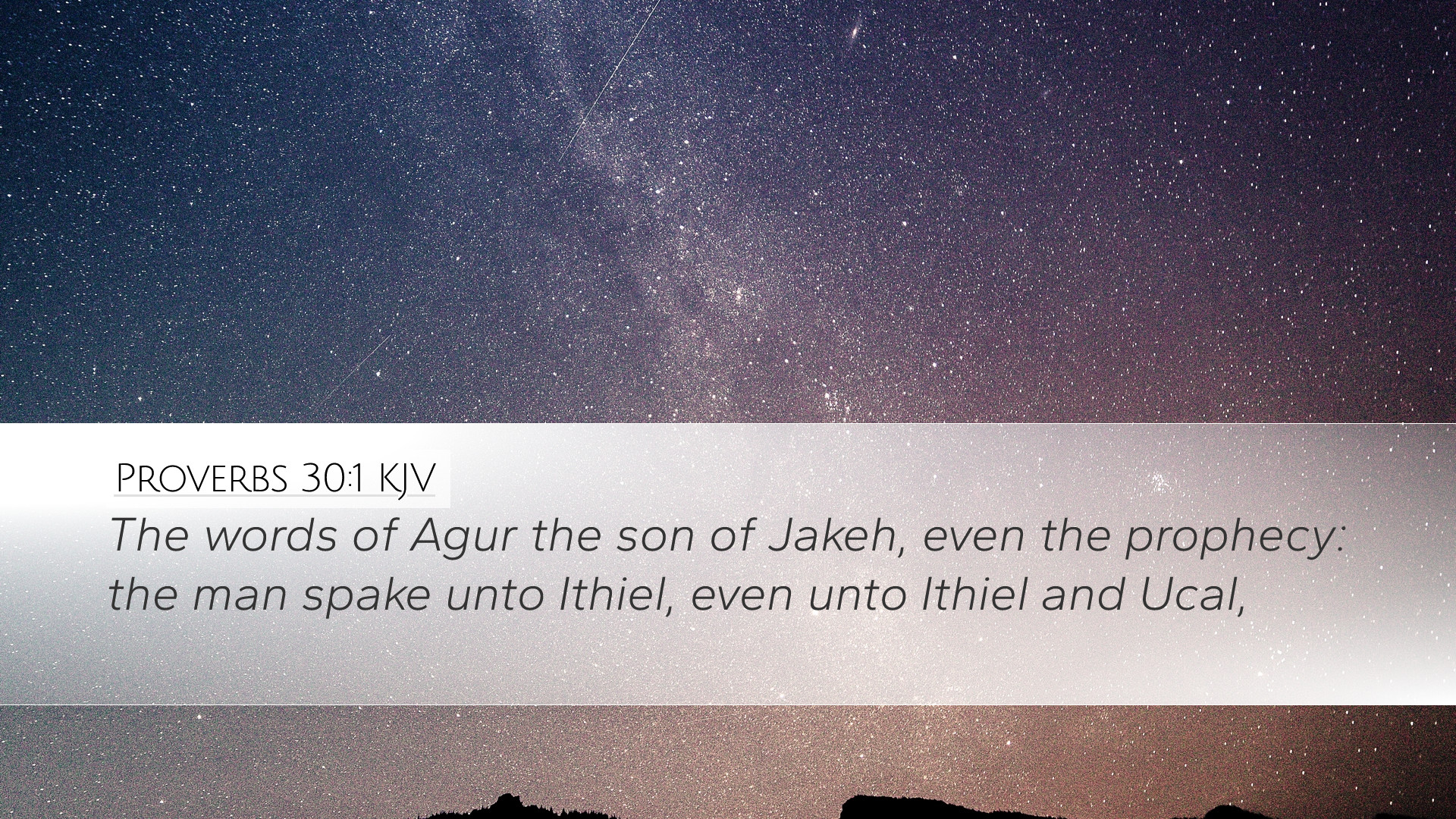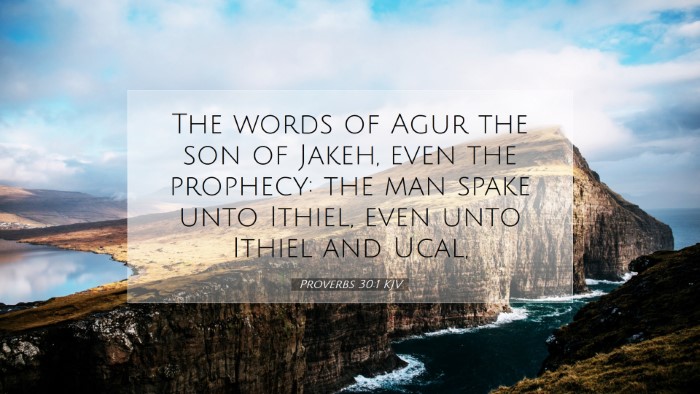Commentary on Proverbs 30:1
Verse Text: "The words of Agur the son of Jakeh, the oracle. The man declares, I am weary, O God; I am weary, O God, and I am worn out."
Introduction
Proverbs 30:1 introduces us to Agur, a unique figure in the Wisdom Literature of the Bible. This single verse provides a glimpse into the heart and mind of an individual grappling with profound weariness and a sense of existential fatigue. Commentators such as Matthew Henry, Albert Barnes, and Adam Clarke provide insights that delve into the meaning behind Agur's words, shedding light on the broader themes of humility, reliance on God, and the pursuit of wisdom.
Context and Authorship
Authorship: The authorship of the proverbs attributed to Agur is significant, as it highlights the diverse voices present in the book of Proverbs. Unlike Solomon, Agur is not widely known, yet his humble acknowledgment of weariness positions him as a relatable figure.
Context: Agur’s declarations come at a pivotal moment in the text, setting the stage for reflections that blend personal struggle and divine wisdom. The authenticity of Agur’s experience resonates especially with those who pursue righteousness amidst the trials of life.
The Declaration of Weariness
Analysis of Agur's Expression: The phrase "I am weary, O God; I am weary, O God, and I am worn out" reveals a deep emotional and spiritual fatigue. It reflects the natural human condition of encountering overwhelming circumstances.
-
Spiritual Exhaustion: Many commentators, including Albert Barnes, suggest that this weariness can stem from the weight of sin, the burden of life, and the pursuit of wisdom that often leaves one feeling inadequate and overwhelmed.
-
Human Limitations: Matthew Henry notes that recognizing one's limitations is a crucial step in seeking divine help. Agur's proclamation can be seen as a humble admission of his dependence on God, which opens the door for divine assistance and wisdom to flow into his life.
Theological Implications
Dependence On God: Agur's weariness underscores a theological truth: humans cannot sustain themselves without the grace and strength of God. Adam Clarke emphasizes that recognizing our frailty is part of the path to wisdom, as it leads us to seek God fervently.
Humility Before God
Agur exemplifies a posture of humility. By expressing his weariness, he models for us the importance of coming before God in our weakened state. The acknowledgment of exhaustion is not a sign of defeat but a step towards divine encounter.
God's Sustaining Power
Commentators agree that God’s sustenance is promised to those who call out to Him in their time of need. Agur’s declaration serves as a reminder to believers that in our moments of greatest struggle, God's power is made perfect in our weakness (2 Corinthians 12:9).
Application for Life
Encouragement for the Weary: For pastors and theologians, the message of Proverbs 30:1 is a crucial reminder to extend grace and encouragement to the weary.
-
Practical Support: Pastors can draw from Agur’s life to identify ways to support those in their communities who feel similarly worn out by life's burdens.
-
Encouragement to Seek Wisdom: Students and scholars should remember that weariness does not preclude wisdom. Instead, it enhances the pursuit of truths that can uplift the weary spirit.
Conclusion
Final Thoughts: Proverbs 30:1 serves as both a confession of human weariness and a catalyst for divine reliance. Agur's expression prompts reflection on the necessity of humility in the pursuit of wisdom. The combined insights of commentators encourage a holistic approach to understanding our own limitations and the boundless strength found in God. As we navigate our own weariness, may we, like Agur, turn our hearts towards God, seeking His wisdom and strength for the journey ahead.


